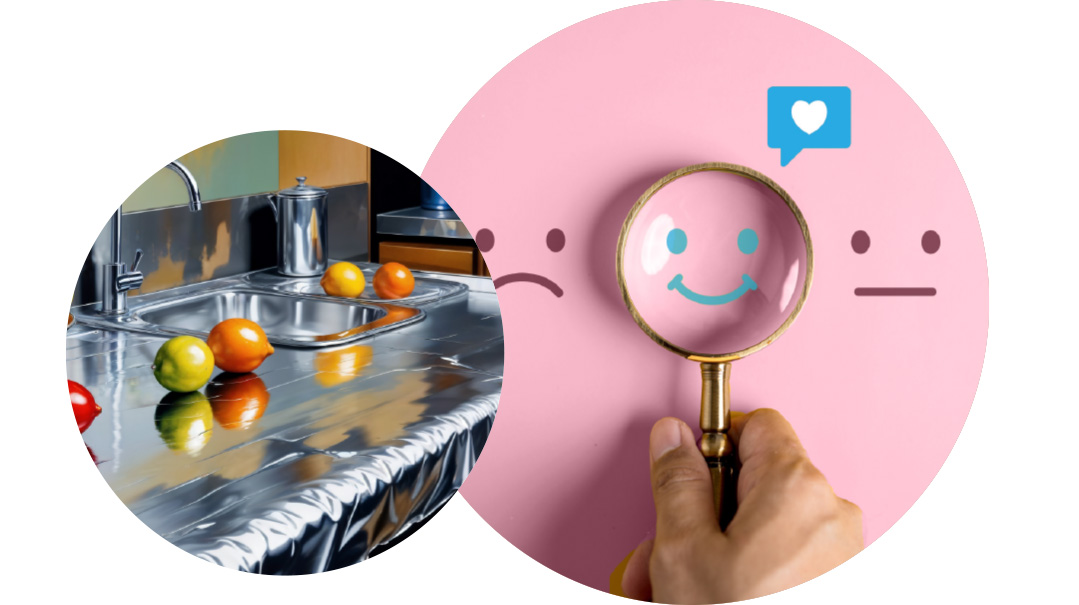Family First Inbox: Issue 825

“Ozempic became the new wonder weight loss drug because some so-called influencers and secular stars touted it on social media”

Mentors, Please Take Care [I’m Stuck / Issue 824]
Thank you for addressing this woman’s question about whom she should trust more for guidance, her therapist or mentor. I really appreciate Rabbi Dovid Ostroff’s note that, “With all due respect, not all mentors are equipped to deal with every kind of situation. Some have expertise in some areas and not in others, and one must look for a mentor who has experience in the particular area you are seeking guidance for.”
This is something I myself have struggled with for so long and is still sometimes an inner conflict.
I beg people who advise others to know that they may not be trained in the subtleties of people’s lives and how crucial it is to listen to the unheard or unsaid words. Blanket statements can be detrimental and can cause a downward spiral toward disaster — especially for someone seeking guidance while in the midst of a turbulent relationship. Realize that you cannot know the full picture and its ramifications, especially without a background in psychology. Yes, it took me more therapists than I can count on two hands to find the proper avenue and help I need, and I’m still amazed that I have the right support. For that I am eternally grateful.
Name Withheld
Ozempic for Obesity [Inbox / Issue 824]
I am responding to the writer who named herself “Formerly Fat.” I was flabbergasted that you truly think our husband’s obesity and the original letter writer’s type 2 diabetes demand the equivalent usage of Ozempic or any semaglutide medication injection. Your argument is ridiculous for three primary reasons. First of all, Ozempic and the like were created for people with type 2 diabetes. An additional side effect is the weight loss. That’s not its intent. Your husband and all the people using it solely for weight loss are using it OFF LABEL. Don’t forget that major detail. It wasn’t meant for your husband and the other people suffering from obesity.
This leads me straight to my second point. It isn’t used exclusively for weight loss for people whose lives are at risk due to obesity. It’s being used cosmetically. I personally heard someone telling a large crowd of women how she paid $800 or so for a prescription to go from thin to very skinny for her child’s wedding. It’s being used in this manner (to various degrees) quite frequently.
Third, your husband’s life is not being imminently threatened by his obesity. By your own admission, his current health problems are unrelated to his obesity. The same way he didn’t become obese overnight, his life isn’t in clear danger overnight. But a diabetic’s certainly is. They need this medication to sustain life and prevent organ damage. Every minute of every day.
Insulin isn’t always an appropriate option, so your suggestion that a type 2 diabetic always has another option is ill-informed. He certainly does also have other options: the medications the original letter writer suggested, such as Metformin and a strict diet. It seems to me that your real agenda here is tackling “fat shaming,” which wasn’t spoken of in the original letter writer’s letter. I don’t believe that was her intent nor is it mine. But to say your husband has no other option is ludicrous. Big Pharma has every reason to be ramping up Ozempic production due to incredible profits. Ultimately, it would seem that there is a limit to how much they can produce.
Taking away medication from those who the medication was intended for and those whose lives are imminently in danger is akin to the ultimate metaphorical sin of “stealing candy from a baby,” albeit with much more serious consequences. I wish the original letter writer as well as your husband and all of Klal Yisrael a refuah sheleimah. May Mashiach come speedily in our days and eliminate the need for any man-made refuos.
Sarah Leah Landau
Lakewood, NJ
Ozempic: The Facts [Inbox / Issue 824]
Dear Formerly Fat,
I had to respond to your letter about the use of the diabetes drug Ozempic for weight loss. Your husband is one of thousands hoping to use, or already using, this drug. Unlike the majority, he has legitimate reasons for doing so.
Ozempic became the new wonder weight loss drug because some so-called influencers and secular stars touted it on social media, so everybody who wanted to lose some pounds got on the bandwagon.
These people are mostly not obese and could lose the weight other ways.
I have been taking Ozempic for several years now for my diabetes. Here are a few facts about it:
Not everyone who takes it loses weight — I, for one, haven’t.
If you stop taking it, the weight comes back.
Like any medication, it has short-term/long-term side effects in some people.
When you say diabetics have an alternate way of controlling their disease, namely insulin, you are displaying the same attitude as the letter writer you were responding to.
Insulin has been very expensive, there have been shortages, and it restricts the lifestyle of the person taking it much more than Ozempic.
Please don’t negate the concerns of diabetics because of your husband’s particular circumstances.
Wishing your husband success with Ozempic and a refuah sheleimah.
SJS
Holy of Holies [Halachah / Issue 824]
I wanted to share a solution to the questioner who expressed that they find it too distracting to daven at the Kosel.
There is a wonderful, quiet, indoor ezras nashim that is a perfect place to daven at the Kosel. It is past the men’s section and inside the tunnel. And it’s even closer to where the Kodesh Hakodoshim was! (Some women also walk through the tunnels to daven by the wall that was closest to the Kodesh Hakodoshim.)
I thank Rebbetzin Tziporah Heller- Gottlieb for introducing me to this special area that is so much more conducive to a meaningful davening at the Kosel.
Nechama Gutmann
Beyond School Walls [TouchBase / Issue 823]
I always enjoy Mrs. Batya Weinberg’s thought-provoking TouchBase articles, and this past week’s, about stepping up to help the klal, was no exception. But I’d like to comment on the text from the Jewish Observer that she quoted at the end of the article, written by a young woman who was choosing to go into computers instead of chinuch, and Mrs. Weinberg’s discussion with her some 40 years later, about whether she regretted that choice.
I’m someone who grew up wanting to be a teacher — I played “school” all the time, used old workbooks to “teach” my younger siblings, and later on “taught” my friends as a form of studying in high school. I went to one of the well-known teaching seminaries, and even enjoyed giving the mandatory model lessons (in Hebrew).
And yet today I’m a software engineer. I work at one of the largest tech companies in the world. Do I regret this choice at all? No. I’m able to support my husband in his learning and live a normal lifestyle, while also saving for the future.
Do I miss teaching? Not really — because I’m constantly trying to find other ways to fulfill that passion. I think it’s very important to note that it’s not a girl’s fault that teaching isn’t such a lucrative career, and I don’t think anybody should regret if they choose to do otherwise. But I do think it’s a shame to waste the teaching talent, and there are so many other ways to teach!
To juxtapose this article with another great article, the interview with Shaindy Plotzker, we can see that we’re given many talents and are sometimes meant to use them in less conventional ways. It became clear to Shaindy that she’s supposed to use her musical talent to inspire others, even if it means giving up her teaching job.
So if you have a teaching talent, but made the decision for yourself that a different job would be better for you and your family, you can (and should!) still teach: give lectures in your community, create workshops, use talents such as music to inspire others, become a kallah teacher. These are just examples that are relevant to me. There are so many ways to use these kochos to help others grow!
Some other examples: If you can make the time, teach a once-a-week class at a high school near you, tutor younger students, and most important of all — use the strengths and talents you were given to inspire the people in your own home.
The words quoted from the Jewish Observer definitely predicted the truth. If you can become a teacher, all the more power to you — that is the most beautiful and noble pursuit. But if you choose to go into programming, or any other field, that’s a legitimate choice as well, and you shouldn’t feel guilty. (As a matter of fact, I think the tech field is extremely well-suited for the frum woman — and the reasons for that go well beyond the pay.) Just make sure you use your teaching strengths in other ways! Klal Yisrael needs you, even if it isn’t within the walls of a school.
SMD
More Harm Than Good? [All Accounted For / Issue 823]
Maybe it’s just me, being an out-of-towner who grew up in a Modern Orthodox community, but the fact that it’s so expected for parents to support their married children in such an intense way is shocking to me. The values of the family and community I grew up in definitely did not include parents sending a set amount of money amounting to thousands every month to their married children. I remember telling my cousins that I wanted to marry someone learning, and they asked how I would support such a lifestyle. I mentioned that I was working, and that maybe I would ask my parents for help if need be. They were shocked at the proposition and explained that they felt that was because they valued monetary independence as a part of growing up. Though at the time I was somewhat hurt, it is now years later, and my husband and I are successfully supporting a learning lifestyle without any support from either set of parents. Our parents were surprised at this themselves, as they had offered to help out if need be, but once they saw that we were making it on our own, that surprise turned to newfound respect for our chosen lifestyle.
I’m wondering if the expectation for parents to financially support married children has to do with the need for living a more expensive lifestyle? How can it be that everyone needs so much support?
Obviously there are cases where the couple are doing everything they can, and simply are not making it. In that case, if the parents are willing to provide financial support, then by all means, they should do so.
It is the entitled tone of this whole conversation that makes me feel uncomfortable. How can it be that every couple expects their parents to pay their rent or their living expenses? I have too many friends who are married and are living without any support for this to be considered something that everyone could and should get.
Maybe there’s no harm in it, some could argue. What’s the big deal? Parents are supposed to love and support their children for their entire lives, not just when they live in their house. 100%. But I wonder if the hand-holding in terms of finances is actually doing more harm than good. Is it appropriate and healthy for married couples to expect their parents to pay for things for them? Again, parents giving gifts or providing certain amounts of money when necessary is not the same thing. It’s the expectation of hundreds to thousands of dollars coming in every month. Shouldn’t couples first do everything to try to support themselves in order to create a sense of independence and closeness as a couple? And then, if all else fails, ask for help? Why is it an expectation?
S.W.
Not All Businesses [TouchBase / Issue 823]
I was very disappointed in Batya Weinberg’s response castigating the store owners who do not want to hire dropouts or other “at-risk” kids.
While chesed is of paramount importance, I don’t think every business is built to take on those with no skill set for the sake of chesed. If the questioner had said, “We have starters with zero work experience but won’t take a dropout,” I’d understand Mrs. Weinberg’s position. But we don’t know why the business is saying no. Could it be that the company requires skills that a 15-year-old may not have yet?
It’s an enormous chesed to hire these boys and girls; as a parent of a high school dropout, I should know. But it is also not a chesed to hire them for the wrong business or for the wrong position, giving them the taste of yet another failure or shortchanging the customers.
Just because SOME businesses should hire dropouts doesn’t mean ALL should.
Anonymous
Life of a Working Mom [Inbox / Issue 821]
I read and reread the inbox letters from “BubbyMom” and “Name Withheld” about their decisions to be stay-at-home moms, and the lack of recognition they received for their decision. First, I thought they were from the “sarcasm” file, but after a few reads I realized that y’all really think the frum world doesn’t give SAHMs a lot of recognition.
I have experienced and witnessed the exact opposite — most likely because I have never once had the luxury/opportunity to be a SAHM. But what I can tell you is that the frum world, and really the world at large, most definitely doesn’t give support to working moms.
Let me share a few examples:
1) The week before Pesach, schools are out. As a working mom, you have to prepare for Pesach, care for your children, AND do your job.
2) Winter break is during the third week of January. Do you know who isn’t off during the third week of January? Ninety percent of the business world. ALL of my clients. Actually, the third week of January is about when they all want to start doing business again... but now I’ll be off trying to enjoy my children and ignoring the nagging pull of the income we need.
3) You mentioned that SAHMs have the option of attending uplifting learning sessions. Working moms don’t, because usually they’re smack dab in the middle of the day.
4) Class trips. They’re all during working hours.
5) You commented that grocery shopping with a toddler in tow isn’t fun. But shopping with all five kids in tow because I have to do it after work, which is also after school, is also not fun... maybe even less fun?
These are just a few of the examples that came to mind, and don’t even include the glorious comments working moms receive:
being called a Shabbos Mommy
being told someone else is raising my kids
being told my kids need me around more
I’m not saying that being a SAHM is easy. I’m sure it’s emotionally challenging. Both writers mentioned that it’s hard to make friends. It’s hard for all moms to make friends. Yes, I speak to adults all day long, but they’re not my friends. They’re employees, clients, partners... and they all need something from me.
But when I’m in a good place, I find I can partner with my SAHM friends (when I’m not, I feel jealous of them). They can shop during the day when the store is less busy, so my thoughtful SAHM friends will text and see if I need anything. When I can’t make a uniform try-on because it’s in the middle of the day, they’ll offer to take my kids. Friends have hosted my family for Shabbos when I’ve been away on a business trip.
And my SAHM friends know they can count on me to be their four-a.m. alarm clock when they need some early morning motivation. If they need some “business attire,” they know whose closet is open to them. When they need some “no-kid time,” they know I’ll usually let their kids come over, because I’m content being at home for once.
So before you add fuel to the age-old fire of SAHM versus working moms, please understand that being a mom is hard. Being a frum mom is incredibly hard, especially for those who don’t have families to help them.
Let’s try to support each other, to recognize the difficulties on both sides —and maybe even help each other out.
Chana Tzall
Henderson, NV
Misconceptions and Mesivtas [Keep Calm and Cheer Him On / Issue 821]
As a mental health professional and wife of a high school mechanech, I’d like to offer a few points, if I may, about the article on helping our kids get into mesivta. Firstly, from my experience, Rabbi Yossi Bensoussan is 100 percent correct. Don’t fool yourself or your child. Pick right the first time, or you’ll be making a tough choice the second or third time around, with a broken child on hand. Swallow your ego and find the right place.
Unfortunately, also from my experience, I know you won’t listen to this advice. You’ll say this is meant for someone else, not me, not my child. I see parents make this mistake with child after child. It’s truly heartbreaking.
Second, when researching yeshivos, please find out: Are the boys happy? This advice is from Rabbi Daniel Kalish, master mechanech. Seems simple, but it’s not a given. For some reason, some people think if the boys are happy, they must not be serious about life or Yiddishkeit. There’s nothing farther from the truth and there’s nothing in the Torah to support this; kids whose spiritual and emotional needs are being met are happy. Don’t overlook this.
Lastly, please find out if the rebbeim and hanhalah address issues. By this I don’t mean throwing out offending boys. I mean working with them, acknowledging their struggles, helping them through. And if the answer is yes, this doesn’t mean the boys in that place aren’t strong. This doesn’t mean it’s a school for “messed up” kids. This means the yeshivah is meeting the needs of the whole child.
Here’s another misconception in our yeshivah world: Good boys don’t need real chinuch after eighth grade. We’re all into balanced chinuch, geshmak learning, social and emotional support — until mesivta. Then we put the kids in a white shirt and black pants/chassidish levush, and voilà! You’ve erased their teenage needs and cured their puberty. They look like adorable little yeshivah bochurim, and on some level we believe the image we see — that they’re mini adults.
There’s a societal message that if your child presents with age-appropriate struggles, then unfortunately your child needs a school for struggling children. The reality is that there’s a huge spectrum in between tzaddikim and off-the-derech youth, and we’re not that great at taking care of the middle.
As a parent, you have a choice: Be the parent to a teenager with normal teenage struggles or be the parent to a teenager whose parent/yeshivah won’t admit they have normal teenage struggles.
A Concerned Psychologist
(Originally featured in Family First, Issue 825)
Oops! We could not locate your form.







